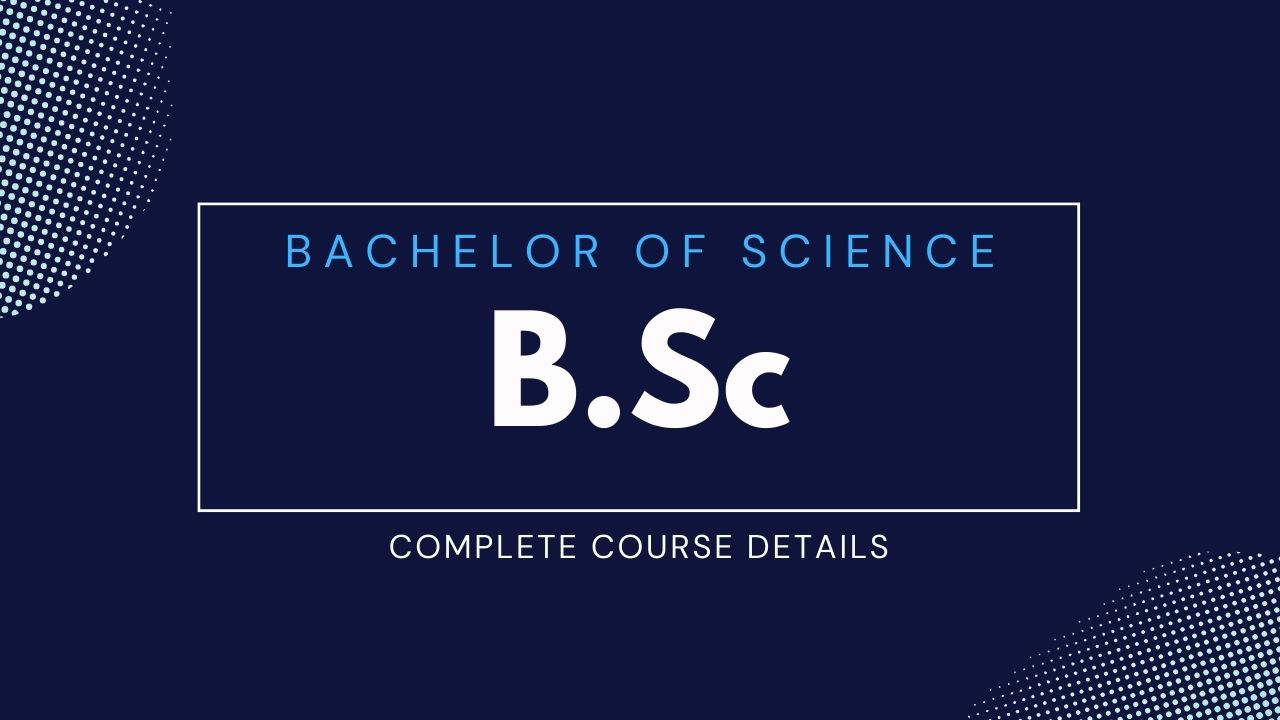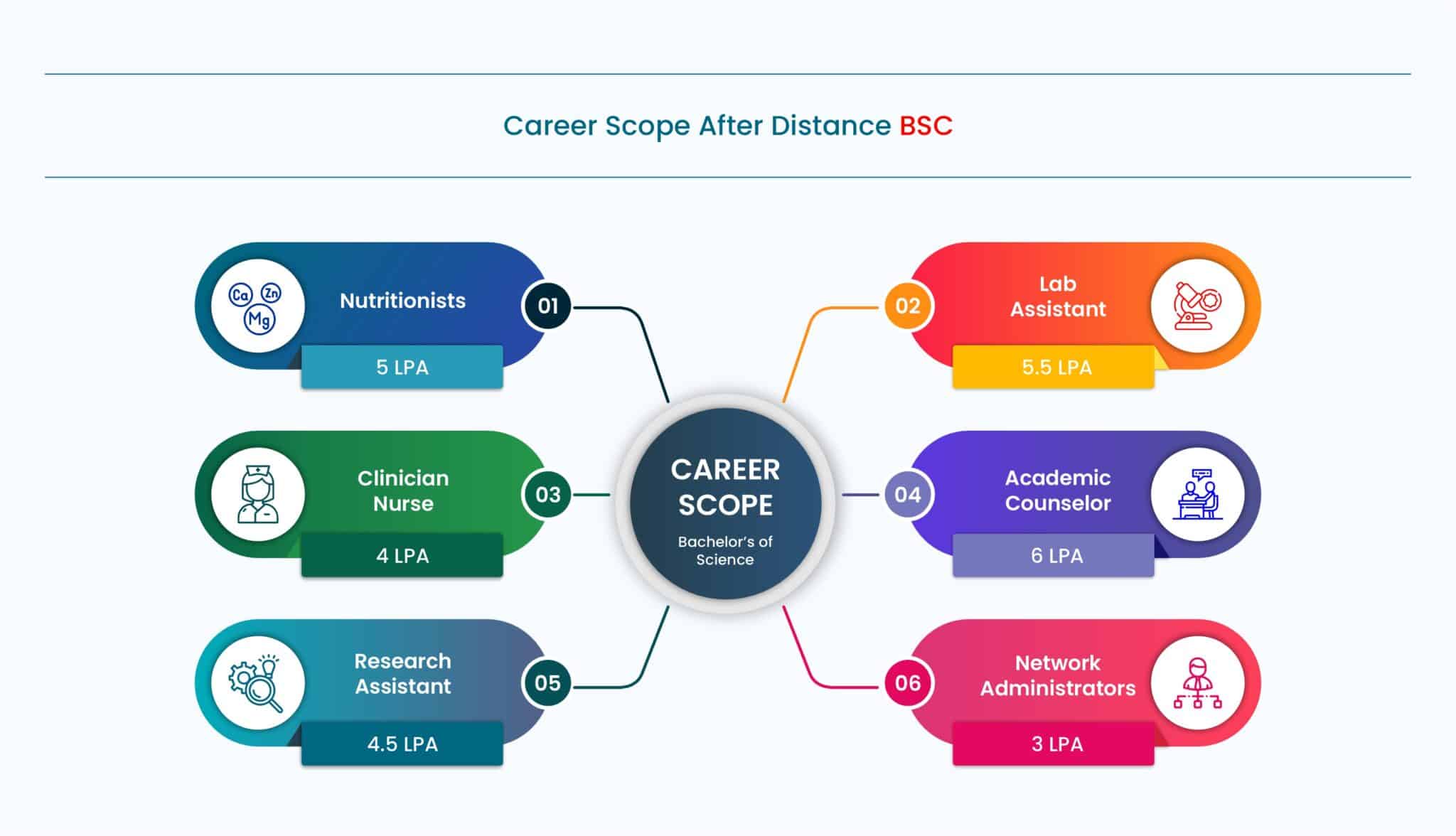
A Bachelor of Science (B.Sc.) is an undergraduate academic degree awarded for completing a program of study in the sciences and related disciplines. The specific courses and requirements can vary depending on the university and the country. However, I can provide you with a general overview of what a B.Sc. typically entails:
1. Duration:
The duration of a B.Sc. program is usually three to four years, depending on the country and the specific program.
2. Major and Minor Subjects:
Students pursuing a B.Sc. choose a major field of study, such as Physics, Chemistry, Biology, Mathematics, Computer Science, Environmental Science, etc. Additionally, some programs may allow students to select minor subjects to complement their major.
3. Core Courses:
B.Sc. programs typically include a set of core courses within the chosen major. For example, a Physics major might take courses in classical mechanics, electromagnetism, quantum mechanics, and thermodynamics.
4. Laboratory Work:
Science programs often include laboratory components to provide hands-on experience and practical skills. This is particularly true for subjects like Chemistry, Biology, and Physics.
5. Mathematics:
Depending on the chosen major, students may need to take a certain amount of mathematics courses, especially if they are in the physical sciences or engineering.
6. Electives:
Students usually have some flexibility in choosing elective courses, allowing them to explore related areas of interest or gain a broader understanding of their field.
7. Research Project: Some
B.Sc. programs require students to complete a research project or thesis in their final year. This provides an opportunity for independent research and deeper exploration of a specific topic.
8. Internships or Practical Training:
Some programs incorporate internships or practical training to give students real-world experience in their chosen field.
9. Final Exams:
B.Sc. programs typically culminate in final exams, and successful completion leads to the awarding of the degree.
It's important to note that the specific details of a B.Sc. program can vary widely between universities and countries. Prospective students should review the curriculum and requirements of the specific program they are interested in to ensure it aligns with their academic and career goals.

Why You Choose Bachelor of Science:
As a machine learning model developed by OpenAI, I don't have personal experiences or choices. However, I can provide information on why individuals might choose to pursue a Bachelor of Science (B.Sc.) degree. The decision to pursue a B.Sc. is highly individual and can be influenced by various factors, including academic interests, career goals, and personal preferences. Here are some reasons why someone might choose to pursue a B.Sc.:
1. Interest in Science:
Individuals with a passion for scientific inquiry and a curiosity about the natural world may choose a B.Sc. to deepen their understanding of scientific principles.
2. Career Goals:
Many careers in fields such as research, technology, healthcare, engineering, and environmental science require a strong foundation in the sciences. A B.Sc. can provide the necessary knowledge and skills for these professions.
3. Problem-Solving Skills:
Science programs often emphasize critical thinking, problem-solving, and analytical skills. These skills are valuable in various professions and can contribute to success in fields beyond science.
4. Research Opportunities:
B.Sc. programs often include research components, allowing students to engage in hands-on experimentation and contribute to the advancement of knowledge in their chosen field.
5. Flexibility:
A B.Sc. degree can offer flexibility, allowing students to specialize in a specific scientific discipline or pursue interdisciplinary studies by combining multiple areas of science.
6. Technology and Innovation:
With rapid advancements in technology and a growing emphasis on innovation, a B.Sc. can prepare individuals for roles in emerging fields such as data science, artificial intelligence, and biotechnology.
7. Intellectual Challenge:
Many individuals are drawn to the intellectual challenge of scientific study. The process of formulating hypotheses, conducting experiments, and interpreting results can be intellectually stimulating and rewarding.
8. Contributions to Society:
Science plays a crucial role in addressing global challenges, such as climate change, public health issues, and technological advancements. Individuals pursuing a B.Sc. may be motivated by a desire to contribute to positive societal outcomes.
It's important to note that the decision to pursue a B.Sc. is a personal one, and individuals should carefully consider their own interests, goals, and aspirations when choosing an academic path. Additionally, some individuals may choose other academic paths, such as Bachelor of Arts (B.A.) or professional degrees, depending on their career objectives.
